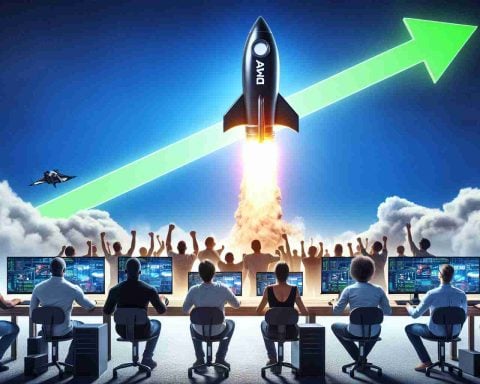Within the realm of online first-person shooters, a fresh contender has emerged that promises to breathe new life into the genre. Modoyo, a newly formed studio, is making waves with its inaugural release, Heart Electric. This game boasts a talented development team, including veterans responsible for beloved titles like Battlefield 3 and Bad Company, managed by director Niklas Fegraeus.
The hero shooter landscape has faced significant challenges recently. Popular titles like Overwatch 2 and Apex Legends have experienced diminishing player bases, while newer games have struggled to establish themselves. Despite this challenging environment, early glimpses of Heart Electric showcase a game designed with deep mechanics and engaging gameplay that could stand apart from its peers.
In Heart Electric, players form teams of four and begin matches in distinct areas on expansive maps. The objective is to outlast other teams by strategically managing respawn resources. Instead of traditional respawn tickets, players rely on energy, which can be replenished by capturing special items known as ‘Hearts.’ These dynamic elements create a blend of classic gameplay modes, including deathmatch and capture-the-flag.
The addition of a magnetic whip enhances gameplay. This allows players to interact with their environment in innovative ways, further diversifying combat strategies. As players await a release date, Heart Electric stands as a beacon of hope, suggesting the hero shooter genre may yet find its footing once more.
Revitalizing the FPS genre has been a focus for several studios in recent years, as the landscape continuously evolves. One prominent trend is the shift towards combining elements from various genres, such as battle royale mechanics with traditional first-person shooting. This hybridization aims to attract a wider audience while retaining core FPS fans. Additionally, many newer titles are incorporating more cooperative experiences, emphasizing teamwork over solo play, which reflects changes in player preferences.
Key questions surrounding the revival of the FPS genre include:
1. What are the reasons behind the decline in player bases for established hero shooters?
– The decline can be attributed to factors such as game fatigue, lack of content updates, and the saturation of similar games. Players often seek fresh experiences, and repetitive mechanics can lead to disinterest.
2. How does Heart Electric differentiate itself from existing games?
– Heart Electric incorporates a unique resource management system with the ‘Hearts’ mechanic, alongside innovative movement options like the magnetic whip, which adds depth to gameplay. This positions it as a potential standout in a crowded market.
3. Can the FPS genre sustain continuous innovation, or will it eventually reach a creative plateau?
– Innovation is crucial for longevity, and while there are always new ideas emerging, there is a risk of exhausting unique concepts. Developers must balance familiar mechanics with innovative features to keep players engaged.
Some key challenges and controversies in revitalizing the FPS genre include:
– Balancing gameplay: Striking the right balance between competitive fairness and fun is crucial. Overpowered mechanics or weapons can lead to frustration in the player base.
– Community and developer engagement: Maintaining a healthy relationship with the community is essential for any FPS game. Developers must listen to player feedback to create a game that resonates with its audience.
– Technological advancements: Keeping up with technology, such as enhanced graphics and online capabilities, can be a double-edged sword. While it can lead to improved player experiences, it also increases development costs and time.
Advantages of revitalizing the FPS genre include:
– Renewed interest: Fresh games can attract players back to the genre and foster a growing community.
– Innovation potential: New mechanics and ideas can lead to a redefined gaming experience that keeps players engaged.
– Monetary opportunities: Successful new titles can translate into significant revenue for developers and studios.
Disadvantages include:
– Market saturation: With so many similar titles competing for attention, players may feel overwhelmed and disengaged.
– Risk of failure: New games can fail to gain traction, leading to financial losses for studios.
– Possible disconnect with long-time fans: Innovations may alienate some portions of the existing player base who prefer traditional mechanics.
For more information on developments in the FPS genre, you can visit PC Gamer or Polygon.






















